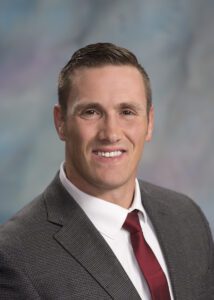Problems with infrastructure intensify for RC schools
RAPID CITY – Rapid City School Board Members received a summarized update about the state of the district school facilities at their regular board meeting on Tuesday night. This week, the District sent out a press release informing parents, students and teachers that some schools would be allowing kids to leave school early on their first day back after Labor Day due to the excessive heat that was predicted. Chief Financial and Operation Officer Coy Sasse said he recently attended a school facilities meeting where they discussed the fact that numerous elementary schools do not have air conditioning, as well as other important needs of many of the schools.
Many of the Districts schools are in disrepair and ill-equipped to handle higher and prolonged temperatures. Building new or making repairs has been a long-time discussion of the community. Now, these infrastructure needs are becoming critical.
RCAS District teacher and parent Sarah Gross thanked the District for the early release notification as well as the advance notice. “I didn’t have to wrestle small children this afternoon because my building was one of the eleven that was let out early because of the heat. I greatly appreciate not having to ask sweating kiddoes to sit and listen when it’s so warm all they want to do is lay on the floor.”
Gross said the need is great for a larger scale building project which she said should be financed by the mechanism “that finances this kind of thing – a bond. I’m a serious teacher and I don’t like losing two hours of instruction today.”
She spoke about the ages of the schools: South Park, Lincoln, South Canyon, Robbinsdale, Meadowbrook, Pinedale and North Middle School were all built in the 1950’s and are now around 70 years old. She said they need community support. “Our community needs to hear about how great school is, how life-changing it is and how we need to support it with a bond so that we can continue to pay our staff and recruit and retain amazing teachers and also just have a functioning system.”
Sasse said the facilities meeting was productive. He said they discussed the air-conditioning situation, and it was suggested that he give a brief presentation to explain the issue. He said money is not the only issue. “This is a really complex situation,” said Sasse. “Even if we had a money tree downstairs, obviously money is a huge part of the issue but it is not the only issue. It is still really difficult because of the condition of our buildings, the variance in age, the systems – this becomes a very difficult conversation very quickly.”
Sasse referenced a visual tool which he explained is like an air-conditioning matrix for the District and lays out what the current status is in terms of permanent or temporary air-conditioning or all of the elementary, middle and high schools. “As you can see immediately that we have schools in very different looking conditions. Again, a lot of that has to do with age, condition of the schools and the actual systems in place in those schools. The matrix looks at infrastructure of all those building and asks some questions; Can the building support additional electrical load? Are the controls adequate? Does the building have existing ductwork that can be utilized? Is the heating system modern and/or low maintenance? Have energy windows been installed?” The schools that are mostly not equipped with any of those are the schools listed previously as well as Grandview, South Valley, Parkview and Wilson.
Sasse said the cost estimate for all the schools to address air conditioning alone is $30-million dollars.
He said some solutions include using what their energy plan calls the nighttime air exchange where they are drawing in cooler nighttime air to cool off the buildings and then conserving that throughout the day. But it becomes difficult when the nighttime temperatures stay high.
Sasse suggested that the Board consider hiring a lobbyist specific to the needs of Rapid City. He said Rapid City’s needs are often unique compared to the needs of the rest of the state.
Some Board members spoke in favor of a bond. Board members agreed to look into hiring a lobbyist who could better represent the district during the legislative season who would have knowledge of the legislative process and could develop bills, find sponsors, and bring them forward.
(Contact Marnie Cook cookm8715@gmail.com)
The post Problems with infrastructure intensify for RC schools first appeared on Native Sun News Today.

